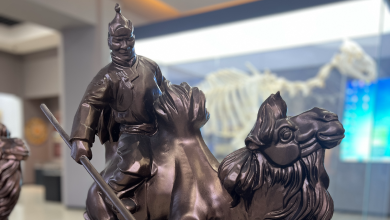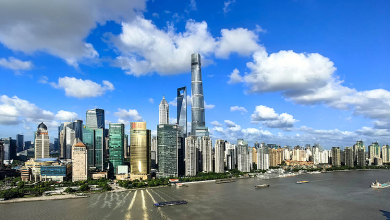South Korea seeks to arm Saudi Arabia amid bid to overtake China as fourth-largest defence exporter
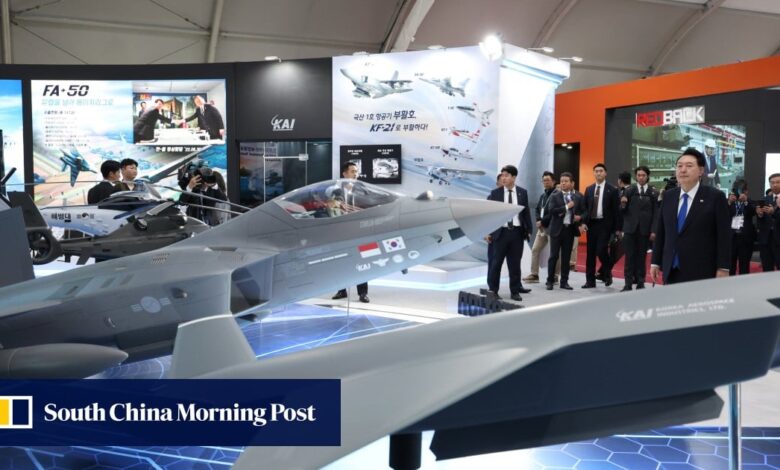
[ad_1]
In response, Yoon said South Korea hoped to contribute to the success of Saudi Arabia’s defence reforms and called for the deepening of ties to include defence training, joint exercises, visits to military bases and people-to-people exchanges.
The country is looking to sell more weapons to Saudi Arabia as part of the next stage of its “Blue Ocean” strategy in bilateral trade, said Kim Tae-hyo, Yoon’s top presidential security adviser, who accompanied the South Korean leader in Saudi Arabia. The involvement of Korean companies in Saudi Arabia’s construction boom in the 1970s and 1980s helped accelerate South Korea’s economic expansion over the period.
The strategy refers to efforts by a country or a company to capture an untapped market with few or no competitors.
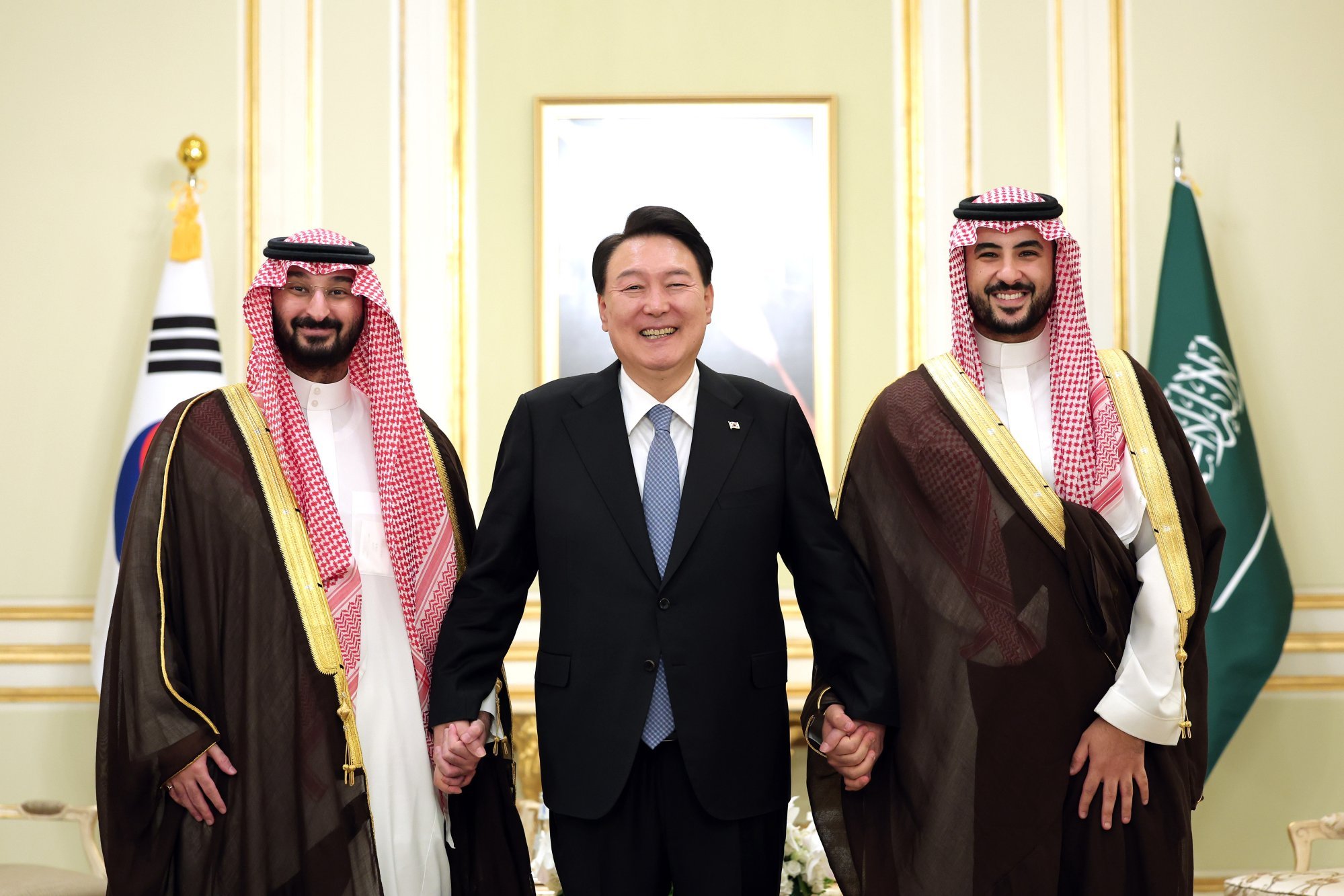
“Large-scale defence industry cooperation discussions are in the final stage, in various areas such as anti-aircraft defence systems and firearms,” Kim was quoted as saying by Yonhap news agency on Sunday.
Both countries are discussing defence industry cooperation programmes with a long-term horizon, said Kim, hinting that their defence cooperation could include weapons supply, maintenance, and training.
“We intend to cooperate so that our weapons systems using our excellent defence industry technologies can help strengthen Saudi Arabia’s defence capabilities, and this will serve as a strong force for further expanding our achievements in defence exports,” he said.
Cheap, fast, good: South Korean weapons in high demand from Malaysia to Poland
Cheap, fast, good: South Korean weapons in high demand from Malaysia to Poland
“We will work together to ensure that our top-notch weapon systems help bolster Saudi Arabia’s defence capabilities, which will serve as a strong catalyst for expanding our defence exports,” Kim said.
The presidential office declined to comment on the types of weapons that could be exported to Saudi Arabia. “The Saudis are sensitive because if they mention specific weapon systems and quantities, neighbouring countries could guess,” said a senior official, who did not want to be named.
Besides buying weapons, Saudi Arabia also wants to spend its vast oil dollars on the transfer of defence technology from foreign partners in a bid to build its defence industry, analysts said.
This is an area where South Korea has an advantage over other weapon suppliers. “South Korea is one of the countries that are most open to defence technology cooperation with foreign partners,” Yang Uk, a senior researcher at Asan Institute for Policy Studies, told This Week in Asia.
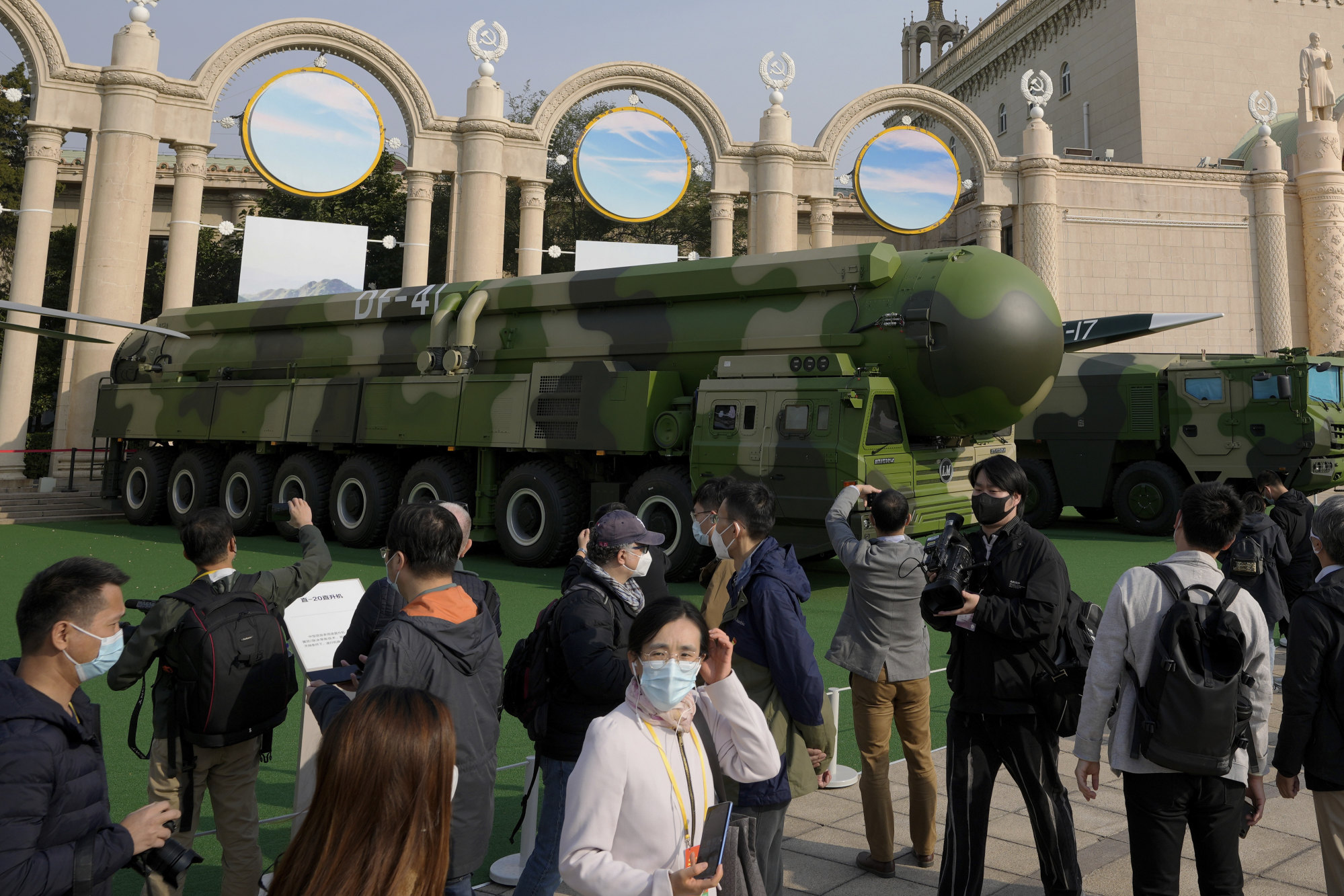
Saudi Arabia also needs to replace its ageing infantry-based weapons including tanks, armoured vehicles, self-propelled guns and artillery pieces, which can be supplied by South Korea, said Lee Il-woo, a senior researcher at the think tank Korea Defence Network.
But Lee warned that China’s defence industry is also eyeing the lucrative Saudi Arabian market.
“It’s hard to say Saudi Arabia is a Blue Ocean for weapons exports, as there are already tough competitors swarming there, including European and Chinese suppliers. It’s rather Red Ocean [competition] for South Korea,” Lee said.
[ad_2]
Source link


